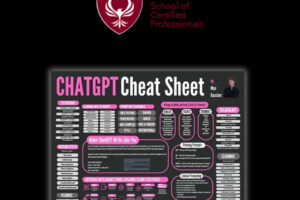5 Common Security Challenges with Microsoft Azure

Microsoft Azure is one of the highly used cloud platforms in the business world. It has grabbed attention worldwide due to its great features, better collaboration, lower costs, cloud-based freedom, and flexibility. But all such benefits associated with Azure come with security challenges as well. With the growing concerns of cyber-threats, cloud security is a serious concern for organizations. To showcase the security challenges with Azure, this blog presents five such common challenges.
-
Misconception about the Shared Responsibility Model
Azure’s working principle is based on the shared responsibility model, which implies that both Microsoft and users are responsible for specific security aspects. For example, in Azure VMs, Microsoft takes responsibility for physical security, hypervisor, and network security. At the same time, users are expected to take care of OS security, identity management, network configuration, data storage, etc.; when organizations lag in contributing their part, this raises many security vulnerabilities.
-
Insider Threat
Employees can be an unintentional source of threat to organizations. Insider threats can be fatal because they can exist in the cloud for a more extended period without getting detected. Employees or third-party partners unintentionally can cause malware installation or other data breach scenarios.
-
Accounts Hijacking
With the practice of cloud computing, stealing account credentials is an easy route for attackers to bypass an organization’s security defense and operate unnoticed. Due to a lack of proper security measures and inadequate Azure security engineers training, attackers manage to get hold of employees’ login credentials using different phishing tactics and then use them to steal data, install malware, etc.
-
Exploiting Azure Blob Storage
Azure Blob storage is one of the favorite targets for attackers because they are well-aware of Microsoft’s ecosystem, so it makes Blob storage an easy target to exploit. They often use PDF phishing tactics via SharePoint to manipulate Office 365 accounts. Once done, they manage to initiate malware attacks. In short, insecure Blob storage is an open gateway for attackers to manipulate victims.
-
Identity-Based Attacks
Microsoft identity tools are meant to be used within the Azure ecosystem, but often organizations use them for their whole firm. This negligence makes them vulnerable to identity threats because cyber-attackers can successfully use the organization’s tenants’ login credentials over other websites.
Wrapping Up
With the growing reliance on the cloud, the rise of security challenges is an expected outcome. But how organizations address those challenges is essential. When they rely on Microsoft Azure for major business operations, they must allocate significant resources for proper measures, and, of course, formal Azure security training will make a substantial difference. In a nutshell, security challenges with Azure and similar other platforms will grow with every passing year, but how much they will impact depends on the security measures done against them.


